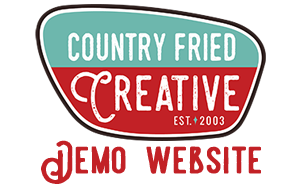by Joe Domaleski | Sep 25, 2023 | Blog, Business, Columnists, Community, Front Page, News Center, Opinion
Iam often asked what it’s like running a business here in Fayette County, Georgia. Although there’s a plethora of articles describing the life of a small business owner, none to my knowledge have delved into the specifics of operating a business in our community. I aim to amend that with this piece, detailing “a day in the life of a Fayette County small business owner.” Although a lengthy read, I hope it provides an enjoyable insight into our local business landscape.
So much of our community’s local work force commutes outside of our county to go to work. When we moved back to the area in 1998, I commuted north to Atlanta as well. Unless you are lucky enough to work for one of the large employers in the community, most of the higher paying jobs were and still are located up in Atlanta. That comes with a cost and for me the cost was business travel. In my very first column, I shared about how the motivation to be home more was one of the reasons I started my business.
I own and operate a digital marketing agency. We are a service-oriented business, differing significantly from retail or restaurant enterprises. This is an important distinction to bear in mind while reading this piece. Although our team is locally based, I’ve adopted a flexible work-from-home policy.
Our primary office is situated in the Westpark area of Peachtree City, a location chosen when I started the business in 2003. Though briefly relocated to north Fayette County, we moved back to Westpark in 2011 and have been there ever since. The office is both welcoming and well-appointed, featuring a fully staffed front desk where clients can receive a professional greeting, or to drop off and pick up items. However, like many service businesses, we operate mostly by appointment. To offer more flexibility to our clients, I recently established a branch office at Trilith in Fayetteville. Unless I have scheduled meetings with clients or staff, my typical work setting is my home, mirroring the arrangement of my employees. I can pretty much do everything I need to do from home, except meet clients.
No two days are identical, but I will try to provide a glimpse of my usual workday, shaped by client projects, employee needs, community involvement, and meetings. Before delving into a day’s narrative, it’s worthwhile to zoom out and understand the broader operational framework shaping my daily activities.
Annually, we set company goals, revisiting and adjusting them quarterly. We convene an “all hands” in-person meeting monthly, sometimes at our offices (Westpark or Trilith), client locations, or occasionally somewhere “fun” to keep the spirit lively.
Every week, I meet with my executive team and separately with our non-executive management team. These meetings, typically conducted via Zoom, help us stay connected and up-to-date. There’s also a weekly operations meeting led by our executives with our employees. Although I am not part of these interactions, it’s heartening to see the business has matured to a level where my presence isn’t needed in every meeting. Our executives excel in managing company operations.
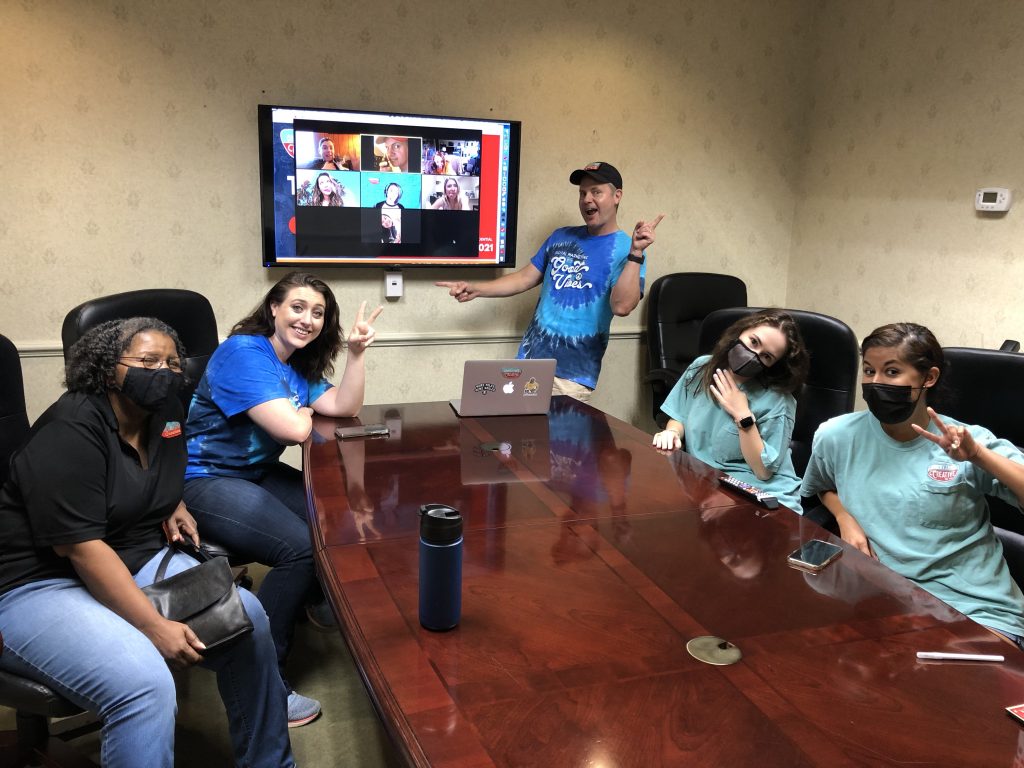
Hybrid team meeting with some staff in our PTC/Westpark office and some online via Zoom during the COVID era. Photo/Joe Domaleski
We rely on two primary business systems, enabling a virtual home base for managing the company. The first is a client ticketing system feeding into our help desk system, facilitating thoughtful customer service. Many businesses merely shuffle emails around, but our ticketing system helps track requests and ensure quality service delivery. Daily, we handle between 10-20 individual requests varying from quote requests, website modifications, technical support to other marketing needs. Most tickets are resolved within 24 hours, with urgent ones receiving immediate attention. The help desk’s inbox can significantly impact the course of a “typical day.” During the COVID era, numerous businesses altered their operational models requiring our assistance to communicate these changes. We set help desk activity records during the COVID period, and it’s gratifying to have helped some many businesses survive. Simply put, the ticketing system allows us to help people more efficiently than if customers contacted individual employees directly.
Our second vital system is our project management/collaboration tool functioning as our virtual office. Powered by Basecamp.com (disclosure: we are their customer, not resellers), this tool facilitates the management of projects, tasks, assignments, documents, schedules, and even provides a platform for interactive communication between team members and clients. It’s a convenient, user-friendly single-source platform accessible via email, web, and phone app. Basecamp predominantly dictates everyone’s workload, and I can view company operations at a macro level or zoom into individual employee tasks. This system significantly contributes to our agility and resilience in adapting to evolving customer needs and circumstances.
On a personal note, I use a separate task management system. In a previous article, I mentioned my affinity for the Getting Things Done (GTD) methodology. I use an application called Things, accessible on my Mac, iPad, and iPhone, for managing both personal and professional tasks. Every Sunday night, I do a weekly review to strategize for the upcoming week, laying out the plan and priorities.
With the aforementioned background, let’s navigate through a “typical day.”
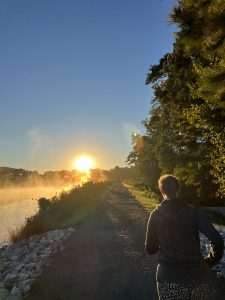
Early morning exercise at Trilith with Mary Catherine. Photo/Joe Domaleski
Early Morning – My wife, Mary Catherine, and I believe in the importance of starting the day early with some exercise. Most mornings see us up by 5 am, heading to the gym or embarking on a brisk walk. This invigorating start ensures other commitments don’t hinder our exercise routine. Post exercise, we have breakfast at home. She drives to her workplace while I commence my workday from home.
Morning – By 7:30 am, I am usually at my computer. Routine checks include the bank account (maintaining a healthy cash flow is vital for small businesses), our financial system, scheduled tasks in Basecamp.com, overnight support tickets (urgent ones alert me via text 24/7), and general email. I sift through these, prioritizing tasks. It’s crucial that I review these BEFORE employees begin their day, allowing for any necessary adjustments in priorities/tasks. Our team enjoys flex hours, with most operating within the core hours of 9 am to 5 pm.
Midday – My meetings are primarily scheduled between 9:30 am to 3:30 pm. Meeting schedules dictate my lunch break and the time slot for tackling pending tasks. On average, I have about 4-5 meetings a day, some brief while others are lengthier. I strive to keep meetings within an hour. At least 2-3 times a week, I plan to have lunch with others. On alternate days, I either eat at home or meet with prospective clients, employees, or other local business associates. If possible, and weather permitting, I try to go outside for some fresh air.
Afternoon – Meetings usually extend into the early afternoon. Subsequent time is devoted to resolving outstanding issues, handling emergencies, consulting with the executive team, and facilitating the smooth flow of operations. I review ticketing and project systems frequently to ensure tasks are on track. By 5:30 pm, I typically wind down my workday, occasionally extending it if crucial tasks remain.
Evening – I make a concerted effort to “clock out” by 5:30pm and encourage my employees to do the same (following our guidance on core hours). Almost every day something pops up from a client at the end of day and after our closing hours. I usually have to make a decision on whether it’s an urgent request that needs immediate attention or something that can wait until morning. Unlike some companies, I try to be firm but not dogmatic about our operating hours to clients. Most clients don’t abuse the privilege of having my personal cell phone. I do answer my phone at all hours if I know who it is.
Some average statistics:
Emails – I usually get around 200-250 emails a day that don’t go to my spam folder, although most are junk. I’d say that at least 50 are worth my attention and only 20 require a direct response.
Phone calls – I usually have about 10 calls I need to personally handle each day. Some are outbound calls that I need to make to follow-up with someone and some are inbound calls where someone needs me. Email and messaging has reduced the need for phone calls.
Meetings – on a “typical day” I have 4-5 meetings. Some are short Zoom check-ins and others are in person office meetings. At least two times a week (but sometimes as many as six times a week) I have an external meeting in the community that’s not directly work related. Sometimes I attend the meetings and sometimes I’m the guest speaker at the meetings.
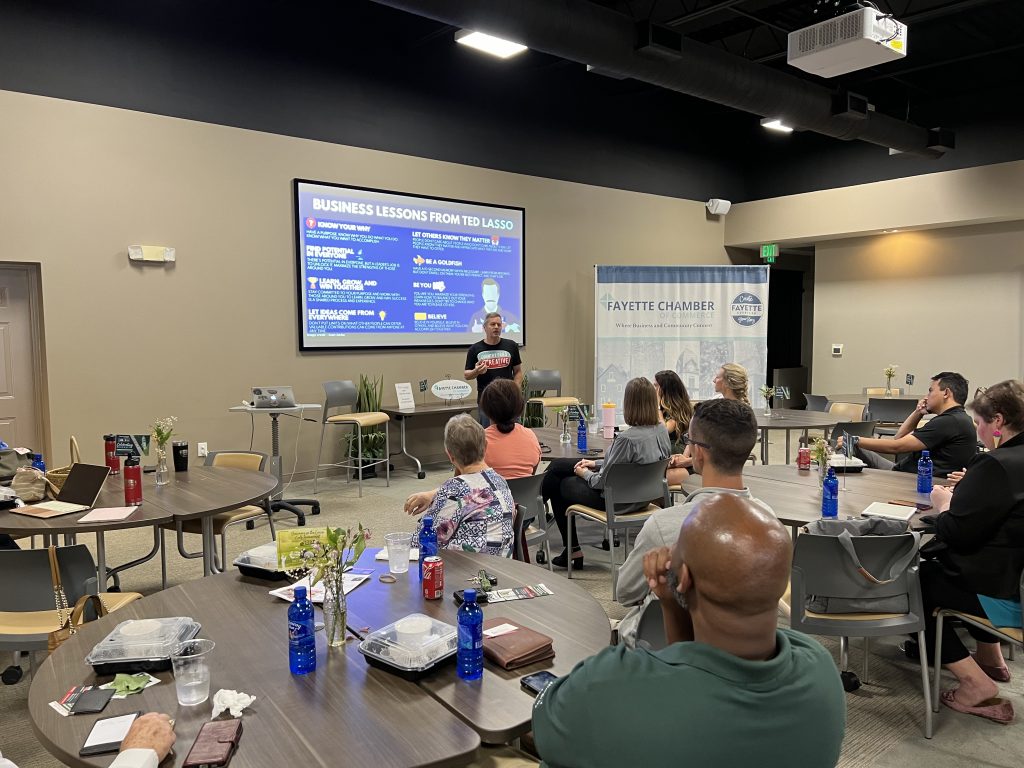
The author Joe Domaleski speaking to the Fayette Chamber on 9/20/23. Photo/Christina Colantonio
Planned vs. unplanned tasks – I’d say about 1/2 of what I do each day is planned and the other 1/2 is unplanned.
If you read through the above “typical day”, there’s probably not a lot that differs from any other small service company. Since we’re talking about Fayette County, Georgia, here’s some things that influence and shape my day that are uniquely local.
- Traffic – although not as bad as driving up in Atlanta, Fayette County has some well known traffic bottlenecks – especially the Hwy 54/74 intersection near my Peachtree City office. As I write this, construction on the data center along Hwy 54 is slowing traffic down dramatically. Bad traffic (regardless of the reason) can increase my time on the road by 50%, even though I live in the county. This impacts my ability to attend meetings and conduct business in the county. Having a good transportation plan is vital to economic growth not just for me, but everyone.
- Community events – one of the joys of owning a local business is the ability to plug into the community and participate in local events – business grand openings, presentations, workshops, networking events, board meetings, and so forth. I participate in several community events a week. The hardest part is deciding which event to attend. I try to plan around them.
- Impromptu drop-ins – because we’re local, sometimes clients like to “drop in”. They’re always welcome to come to our Peachtree City home office, but it’s no guarantee that I’ll be there in person waiting for a visitor. I encourage people to set appointments.
- Interacting with clients in the community – I often joke with customers that I’m inspired to do great work for them because I’ll see them in the community and it’s true. There’s nothing secret in this community of ours and if I don’t do a good job I just might hear about it in the community. The inverse is true and it’s very rewarding to see our work in the community – websites, logos, social media, and other creative works.
- Lack of privacy – that’s one of the downsides of working in the local community. Although it’s not like I’m a celebrity, I do know lots of people and they know me. It’s hard not to run into people I know in the area. That’s mostly a good thing, but sometimes it’s hard to have privacy.
- Competitors – Our local competitors are all great folks and I don’t really feel like there’s a rivalry among us like there is with other industries. We each have our own specialties and, although I can’t speak for them, feel like we all get along just fine. In fact, we rarely compete directly – there seems to be plenty of opportunity for everyone.
- Former clients and employees – Yes, seeing a former client or employee in the community can be a little awkward sometimes. I guess it’s like seeing an ex-boyfriend or ex-girlfriend out in public. We’ve had very little employee turn-over and honestly I can’t think of any bad encounters with former employees. Quite the contrary, it’s great to catch up with them. Regarding customers, I can only think of a handful of “bad encounters” with a former customer in the 20 years I’ve had the business.
- Making an impact – of all the things that influence my day, I think the ability to make an impact in our community is the most important. We work hard to create local jobs, help local businesses, and support local non-profits. Knowing that what we do helps the local community gives me a sense of purpose and I’ll shift my day around as needed to make that happen. Living, working, and raising a family in our community has been my life’s work for the past 20+ years and hopefully for many more years to come.
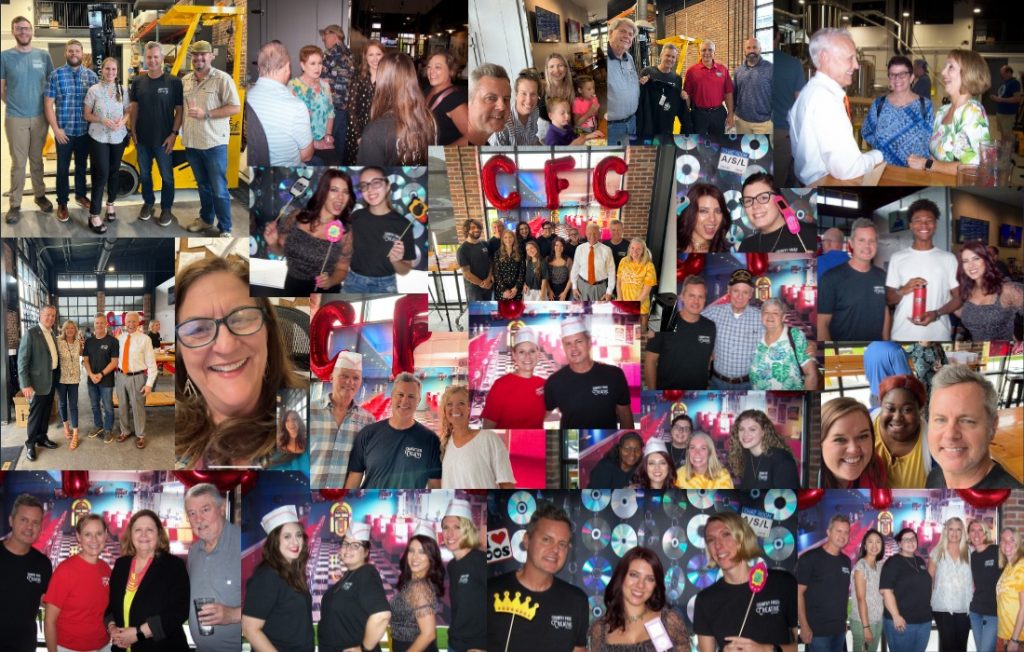
Making an impact. Photo montage from our company’s 20th Anniversary Party in August 2023. Photo/Abby Paver
So, there you have it: a ‘day in the life of a Fayette County small business owner.’ It’s a great life, and I wouldn’t trade it for anything. Many of my college classmates and business associates have either retired early or become executives in large corporations. I decided early on that the big company life wasn’t for me. It’s a blessing to be able to live, work, and play in a small community. Fayette County is large enough for opportunity, yet small enough for developing meaningful relationships with people and making an impact.
[Joe Domaleski, a Fayette County resident for 25 years, is the owner of Country Fried Creative – an award-winning digital marketing agency located in Peachtree City. His company was the Fayette Chamber’s 2021 Small Business of the Year. Joe is a husband, father of three grown children, and proud Army veteran. He has an MBA from Georgia State University and enjoys sharing his perspectives drawing from thirty years of business leadership experience. ]
by Joe Domaleski | Sep 18, 2023 | Blog, Business, Columnists, Community, Front Page, News Center, Opinion
Have you ever watched a promo for a TV series thinking you wouldn’t like it, but then when you actually watch an episode – you love it? Ted Lasso was such a series. During the height of COVID when everyone was at home streaming shows, we fell in love with the Ted Lasso TV series. Debuting on Apple TV+ in 2020, Ted Lasso was the show America needed during COVID.

Ted Lasso on Apple TV+. Photo/Apple
The premise of the “Ted Lasso” series revolves around the character of Coach Ted Lasso, played by Jason Sudeikis. Ted Lasso is an American college football coach who is unexpectedly hired to coach a professional soccer team called AFC Richmond in England, despite having no prior experience with soccer (or football, as it’s known in the UK). Despite the odds stacked against him, Ted Lasso brings his own unique brand of optimism, positivity, and genuine care for people to the team.
Coach Lasso believes in the potential of his players and strives to build a sense of unity and camaraderie among them. The series explores themes of leadership, teamwork, personal growth, and the power of positivity as Ted Lasso and his team navigate the challenges of professional soccer and personal relationships. “Ted Lasso” is known for its heartwarming and comedic storytelling and has been praised for its portrayal of kindness and optimism in a sometimes cynical world.
Besides being a funny show, Ted Lasso offered up a lot of excellent advice. Here are some of my favorites from the show:
“I’ve heard folks say that if you love what you do, you’ll never work a day in your life. Well, I gotta disagree. I love what I do, and I work incredibly hard.”
Despite the “get rich quick” advice on social media, running a business is hard work. I haven’t met a small business owner (and team) who doesn’t work hard. Loving what you do is a fantastic starting point, but it’s the combination of passion and hard work that propels small businesses to achieve their goals and make a lasting impact in their industries. It’s the dedication and effort put into the business that can transform a passion into a successful and thriving enterprise.
“For me, success is not about the wins and losses. It’s about making these young players better people, first and foremost.”
I’ve written previously about how my motivations for running a business have changed. It’s all about our team. Contrary to the suggestion that an owner’s job is to maximize profits, I believe it’s my job to be a good coach for our business team. Yes, it’s my responsibility to manage the financials to ensure our people are well-paid, but it’s more than that. My job as the owner is to create an environment where our team can be the best versions of themselves and get fulfillment in terms of knowledge, leadership, and fulfillment.
“There’s two buttons I never like hittin’, and that’s panic and snooze.”
Uncertainty and challenges are inevitable. Hitting the panic button can lead to hasty decisions that may have detrimental consequences. Similarly, hitting the snooze button by procrastinating or delaying critical actions can hinder progress and growth. Instead, businesses should face challenges with composure. This approach fosters adaptability, innovation, and the ability to navigate complex situations, ultimately contributing to a more successful and sustainable business.
“I promise you, there is something worse out there than being sad, and that’s being alone and being sad.”
The entrepreneurial journey can be incredibly challenging and filled with moments of doubt, stress, and even sadness. Family, friends, co-workers, peers, and professional contacts are all part of your tribe. These connections become a source of strength and shared wisdom, offering guidance, camaraderie, and reassurance. Don’t go it alone.
“Taking on a challenge is a lot like riding a horse. If you’re comfortable while you’re doing it, you’re probably doing it wrong.”
Running a small business or organization is inherently about embracing challenges and stepping out of one’s comfort zone. In fact, it’s been my observation that most stagnation occurs when people get too comfortable with the status quo. Discomfort is a sign of progress and a chance to learn, innovate, and ultimately thrive in a competitive landscape. It reminds us that, in the pursuit of success, embracing the unknown and pushing boundaries can lead to remarkable achievements and personal growth.
“I believe in hope. I believe in believe.”
This is my favorite Ted Lasso quote. Ted Lasso’s unwavering belief in his players, his team, and the power of positivity underpins the entire TV show. This belief isn’t blind; it’s a conscious choice to see the potential in others, to foster unity and camaraderie, and to approach challenges with resilience and hope. One thing I underestimated as I developed our Country Fried Creative team over the years is the need to reinforce the need to “Believe”.
“Believe” teaches us that in sports, business, and life, the power of belief can be a transformative force, capable of turning underdogs into champions and adversity into opportunity. It’s a reminder that in the face of doubt or difficulty, belief in oneself and others can be the catalyst for extraordinary achievements and personal growth.
Coach Lasso, thanks for helping me “Believe”. People think I have all the answers, but I don’t. What I do have is a belief to see the potential in others – team members, clients, and our community. If you’ve seen the TV series Ted Lasso, what are some of your favorite quotes? If you haven’t seen it yet, what are you waiting for?
BELIEVE
[Joe Domaleski, a Fayette County resident for 25 years, is the owner of Country Fried Creative – an award-winning digital marketing agency located in Peachtree City. His company was the Fayette Chamber’s 2021 Small Business of the Year. Joe is a husband, father of three grown children, and proud Army veteran. He has an MBA from Georgia State University and enjoys sharing his perspectives drawing from thirty years of business leadership experience. ]
by Joe Domaleski | Sep 11, 2023 | Blog, Business, Columnists, Community, Front Page, News Center, Opinion
Today is a day of national remembrance. On September 11, 2001, a series of coordinated terrorist attacks occurred in the United States. Do you remember where you were when we were under attack? I do, and it seems like just yesterday. Besides being a day of remembrance, today is also a good day to reflect upon the lessons we learned from 9/11. Many of those lessons apply to your own personal and business preparedness planning.
Although there have been isolated incidents over the years, the attacks on 9/11/01 were the first large-scale attack by a foreign power on the United States mainland since the War of 1812. These attacks are often referred to as “9/11” and had a profound and lasting impact on the country and the world. Our country had to be resilient in order to react and respond to the attack on 9/11.
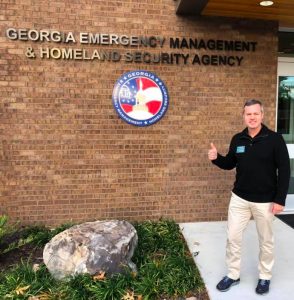
The author (Joe Domaleski) prepares to attend NIMS and ICS training at GEMA/HS HQ in Atlanta. Photo/Georgia AUXCOMM
“Communities across the nation experience a diverse set of threats, hazards, and events. The size, frequency, complexity and scope of these incidents vary, but all involve a range of personnel and organizations to coordinate efforts to save lives, stabilize the incident, and protect property and the environment.” – Introduction from National Incident Management System (NIMS) developed by the Federal Emergency Management Agency (FEMA) and the Department of Homeland Security
NIMS was born In the aftermath of the 9/11 disaster and offers lessons that can be equally applied to government agencies and businesses. It is built on six key principles: 1) Command and Management; 2) Preparedness; 3) Resource Management; 4) Communications and Information Management; 5) Supporting Technologies; and 6) Ongoing Management and Maintenance.
Although not normally as life-threatening, a business has to respond to incidents, threats, and attacks that occur during the normal course of business operations. These may include:
- Cyber attacks
- Theft and fraud
- Natural disasters
- Supply chain disruptions
- Financial challenges
- Reputation damage
- Legal and regulatory problems
- Environmental issues
- Market competition
- Health and safety concerns
- Lack of resources
Not all threats and attacks are deliberate; some manifest themselves in the marketplace as a consequence of doing business. Instead of addressing each threat specifically, let’s apply some lessons in resilience learned from 9/11 by examining NIMS. In addition to that, I’ll incorporate experiences from my time in the US Army and my civilian training in various components of NIMS and the Incident Command System (ICS). I’m going to paraphrase NIMS and ICS principles to apply them in a business context:
- React to the situation appropriately – It should go without saying that when a threatening situation is encountered, it must be addressed. Ignoring a problem does not make it go away. In the Army, we would react to an attack by taking cover and returning fire. In a non-combat emergency situation, appropriate personnel and resources are dispatched to handle it.
- Establish communications – If a robust means of communication is not already in place, it’s important to establish one. In today’s high-tech world, it’s rare not to have a means of communication. Often, the issue is that there are too many communication methods, and it’s not clear when to use each technology. When email and phones go down, how should your employees communicate with you?
- Assess the situation – Gather information about what’s going on, including the nature of the issue, the scope of the situation, and its likely impact on your organization.
- Establish command – Make it clear who will be in charge of handling the situation. Is it you, the business owner? Should you delegate the situation to one of your managers? It’s crucial that everyone knows who will take the lead. In NIMS, we call this establishing an Incident Command. This same principle can be applied in business.
- Create a plan – Based on the situational assessment, the person in charge needs to formulate a plan for handling the situation or threat. The plan should outline objectives, strategies, and tactics for addressing the situation and be flexible enough to adapt to changing circumstances.
- Acquire and manage needed resources – Once a plan is in place, the next step is to acquire and manage any necessary resources, such as staff, technology, communications, financing, and outside assistance.
- Manage operations – Using the plan and allocated resources, the person in charge should effectively oversee the operations involved in addressing the situation. This includes managing communications, collaboration, information management, supervising activities, and resource handling.
- Document and report – The team responding to the situation should document ongoing developments and report progress. Detailed records of incident activities, resource assignments, and expenditures should be maintained. Reporting to stakeholders ensures their buy-in and establishes confidence that the situation is being handled properly.
- Conclude the operation – Once the situation is under control, the organization or team managing it should transition back to a normal pace of operations. Staying on high alert for extended periods is unsustainable. Restore normalcy as soon as possible.
- Evaluate and improve – Take the time to conduct an “after-action review (AAR)” and assess how the situation was handled. Evaluate the response’s effectiveness and identify lessons learned. Use feedback to enhance future response efforts and update response plans as needed.
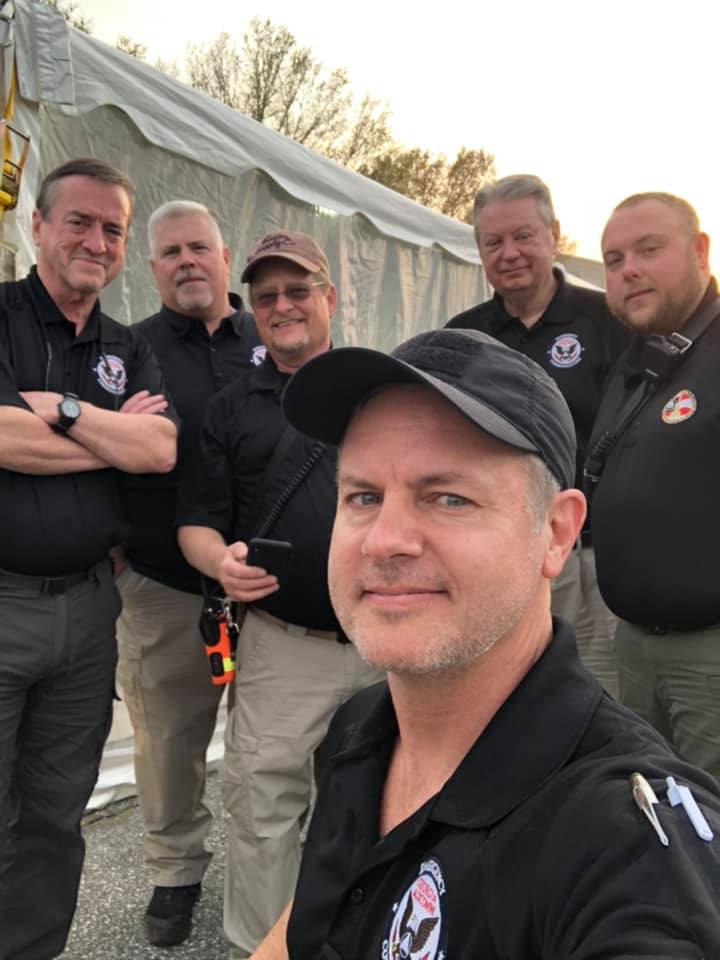
The author (Joe Domaleski) supporting a GEMA/HS communicaions operation as a volunteer. Pictured with (Left-Right) – David Benoist, Joe Martin, Tom Olley, John Davis, and Edwin Whitworth. Photo / Georgia AUXCOMM
NIMS, based on lessons learned from 9/11, reminds us of the power of resilience and the importance of having a well-defined framework for dealing with tough times. This model teaches us to learn from past emergencies and continually enhance our response capabilities. Allow the memory of 9/11 to motivate your business (and personal life) to grow and improve in the face of challenges. We can draw lessons from that day to inspire innovation, strengthen resilience, and strive for excellence, ensuring we are well-prepared for the uncertainties of the future. What are you doing to prepare for unforeseen circumstances and how will you deal with them?
PERSONAL NOTE – In the aftermath of the 9/11 disaster, I decided it was important to have a backup method of communication, so I obtained my FCC Amateur Radio License (aka ham radio). My wife Mary Catherine has her license as well. In order to be in a position to volunteer during incidents, I also received training in NIMS, ICS (Incident Command System), CERT (Community Emergency Response Team), Communications Unit Leader (COML), Communications Unit Technician (COMT), and Auxiliary Communications (AUXC). As a civilian, I volunteer at the local level through ARES (Amateur Radio Emergency Service) and at the state level through the GEMA/HS (Georgia Emergency Management Agency / Homeland Security) AUXCOMM (Auxiliary Communications) program. If you would like to know more about any of these program, feel free to contact me directly – email: ki4ask@arrl.net.
[Joe Domaleski, a Fayette County resident for 25 years, is the owner of Country Fried Creative – an award-winning digital marketing agency located in Peachtree City. His company was the Fayette Chamber’s 2021 Small Business of the Year. Joe is a husband, father of three grown children, and proud Army veteran. He has an MBA from Georgia State University and enjoys sharing his perspectives drawing from thirty years of business leadership experience. ]
by Joe Domaleski | Sep 4, 2023 | Blog, Business, Columnists, Community, News Center, Opinion
The traditional end of summer is usually marked by the three-day Labor Day Weekend, even though summer technically ends in a few more weeks during the Autumn Equinox. Here in the metro Atlanta area there’s always a lot of events going on during the three-day weekend – festivals, football games, neighborhood barbecues, and even Dragon Con (one of my personal favorite events).
It’s easy to get caught up in the events and forget about the significance of Labor Day. For small business owners like myself, this holiday is an opportunity to express gratitude and appreciation for the heart and soul of our businesses – our dedicated employees. It is a day to celebrate the individuals who bring our dreams to life, who work tirelessly, and who infuse our businesses with their unwavering commitment.
Small business employees are not just workers; they are the lifeblood of our ventures. They are the friendly faces that greet our customers, the skilled hands that craft our services, and the problem-solvers who keep our operations running smoothly. Their dedication and hard work propel our businesses forward, transforming mere ideas into thriving realities.
In the hustle and bustle of daily operations, it’s easy to overlook the immense value that our team brings to the table. They pour their energy and talent into our businesses, and they do so with a passion that goes beyond the paycheck. It’s on Labor Day that we pause to acknowledge this dedication and express our heartfelt gratitude.
The importance of Labor Day becomes all the more apparent when we consider the trying times we’ve faced, particularly during the challenges brought on by the global pandemic. Our employees have been steadfast, weathering uncertainty, adapting to new circumstances, and contributing to our businesses’ resilience. They’ve shown up every day, embracing change and supporting each other through the darkest days.
As a small business owner, I’m aware of the sacrifices and hard work our employees put forth, often without the recognition they truly deserve. This Labor Day, I want to take a moment to express my profound appreciation for their unwavering commitment. You are not just employees; you are part of our business family, and your dedication does not go unnoticed or unappreciated.
Our employees are the backbone of our small businesses, and they deserve more than just a day of recognition. They deserve our continued support, fair wages, opportunities for growth, and a safe and positive work environment. This Labor Day, let us recommit ourselves to ensuring that our employees feel valued and cherished every day of the year.
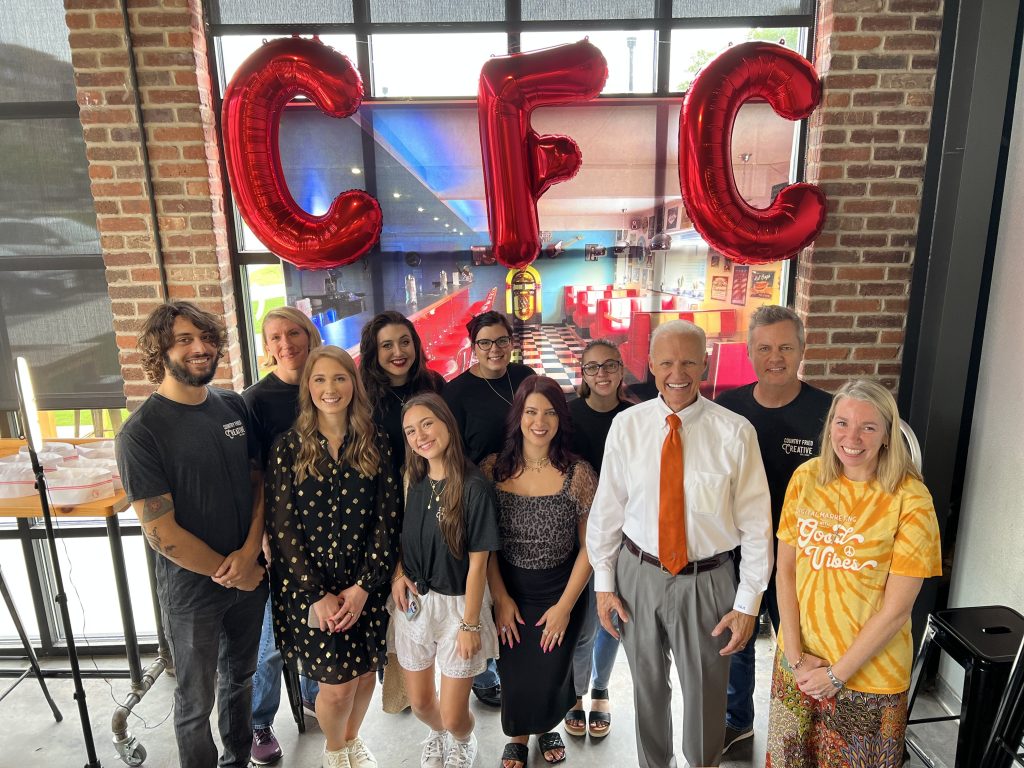
Our employees celebrate the 20th Anniversary of Country Fried Creative (CFC). Pictured here with CFC’s very first client from 2003 – Judge David Moore (front-row wearing a tie). Photo/Joe Domaleski
When you support a small business by being a customer, you’re helping to create local jobs, pay mortgages, put food on the table, help families make ends meet, and make our community economically viable. Most employees of a small business are working there because they love their community, forsaking greater economic opportunities elsewhere. As a small business employer, I try really hard to keep prices competitive, but charge enough so my staff can earn a living. I love our customers, but the real reason I have a business is because of our employees and that’s what motivates me to keep going.
In closing, as you enjoy your Labor Day celebrations, remember the hardworking individuals who make our small businesses thrive. Their dedication and loyalty are the bedrock upon which our community is built. To all small business employees, thank you for your unwavering commitment and the invaluable contributions you make to our dreams. Happy Labor Day!
[Joe Domaleski, a Fayette County resident for 25 years, is the owner of Country Fried Creative – an award-winning digital marketing agency located in Peachtree City. His company was the Fayette Chamber’s 2021 Small Business of the Year. Joe is a husband, father of three grown children, and proud Army veteran. He has an MBA from Georgia State University and enjoys sharing his perspectives drawing from thirty years of business leadership experience. ]
by Joe Domaleski | Aug 28, 2023 | Blog, Business, Columnists, Community, News Center, Opinion
EDITOR’S NOTE: In a Citizen exclusive, columnist Joe Domaleski shares his thoughts on the occasion of his company’s twentieth anniversary. Congratulations to you Joe and the entire CFC team.
Pinch me, I think I’m dreaming – the one-man company I started with a small bank account, thoughts, and prayers has made it to the 20-year mark! According to data from the Small Business Administration, 20% of new businesses fail during the first years of being open, 50% during the first five years, and less than 30% remain after ten years. The failure rate of new businesses is 70% by year ten. Let that sink in – most new businesses fail. I’ve often said that starting and running a business has been one of my biggest sources of joy, but it’s also the hardest thing I’ve ever done. Join me as I look back at key moments in our 20-year history.
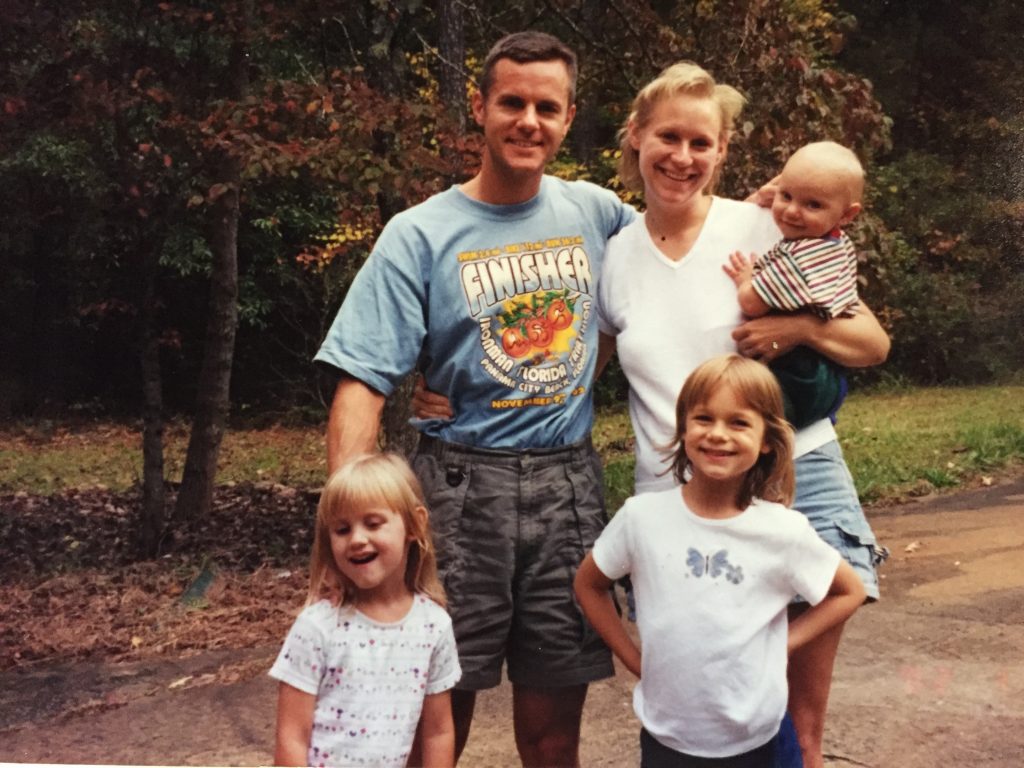
The reason I started our company – to spend more time with my family. Here we are in November 2002 contemplating options for the future. Photo/Rev. Frank Mercer
In the spring of 2003, I launched Southside Consulting, Inc. My first column in this newspaper talked about the reasons I started the business. The name of the company was designed to communicate two things. First, we were going to be local and focused on the south side of Atlanta. Secondly, the name of our company needed to be broad enough to cover whatever we ended up deciding to do. When in doubt, just tell people you’re a consultant – so that’s what I did, and Southside Consulting, Inc. was born in March 2003.
Our original plan was to focus on technology, websites, and general project management. Leveraging years of IBM technology consulting experience, I put together an expert contractor team to provide top notch services to other small businesses. As I began to tell friends about my plans, I got all kinds of advice – some good, some not so good. Two specific pieces of advice ended up being the cornerstones of our business, even though I didn’t know it at the time. I was advised to (1) Join the Fayette Chamber of Commerce and (2) Get involved in a civic or non-profit group. I did both and am so glad that I did.
When you’re a start-up, the most important immediate business objective is to tell others about it. I printed up some generic business cards and started telling anyone who would listen about our new company. Right off the bat, two friends from Church became my first two clients – Judge David Moore with Peachtree Law Group (for whom we built a website) and Attorney John Kimbell (for whom we implemented an office computer network to help his firm Edge & Kimbell). Thanks, guys, for believing in me.

Original logo of Southside Consulting, Inc. which would later become Country Fried Creative. Logo/Shari Gee
Shortly after joining the Chamber of Commerce, I found out about the Chamber’s annual community business expo and decided to attend. During the expo, I handed my business card to Shari Gee, with Strokes of Geenius. She took one look at my pitiful homemade cards and said I needed a logo. I hired her on the spot, and she did the original logo for Southside Consulting. That would also be the beginning of a collaboration with Shari for the next 8 years. She was our original Creative Director.
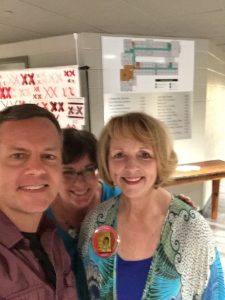
Joe Domaleski with Peggy Thomas and Vicki Turner in 2017. All three of us are former Fayette Chamber of Commerce Board Chairs. Photo/Joe Domaleski
When you become actively engaged in the local community, word spreads rapidly. I received invitations to join several boards and participate in volunteer activities. Looking back, I admit I may have overextended myself, but the lessons gained were invaluable. I eventually made the decision to streamline my involvement by focusing on a select number of groups and increasing my commitment to the Chamber. The invitation to become a Chamber Ambassador and enroll in the Leadership Fayette program marked a pivotal moment, as it was through these programs that I crossed paths with Mrs. Vicki Turner.
Even today, Mrs. Turner remains an influential figure in the community, and it’s a privilege to collaborate with her on the Fayette Fire Foundation board. In 2005, she recognized potential within me that I hadn’t yet seen, urging me to consider applying my efforts at Southside Consulting with her flourishing family enterprise, AIS Computers. This fusion took place in 2006, positioning me as the new President while her husband, Tommy Turner, assumed roles as CEO and Board Chair. My commitment to the community continued through affiliations with the PTC Rotary Club, the Fayette YMCA (now part of Coweta/Fayette YMCA), and other groups.
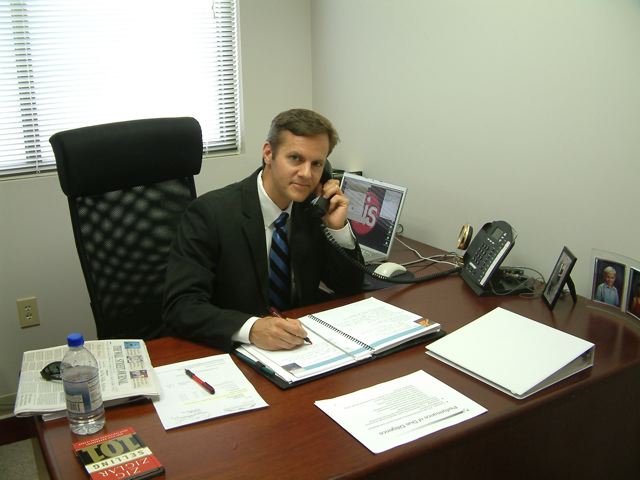
Joe Domaleski as the newly appointed President of AIS Computers in 2007. Photo/Christy Turner
My leadership tenure at AIS Computers was an enjoyable one as I got to blend my technology consulting and website experience with their retail-oriented expertise in Apple computers. During this phase, I crossed paths with Cal and Joyce Beverly, proprietors of the newspaper where you’re currently reading this story. Our collaboration on their website and technological infrastructure marked another important moment in my business’s expansion. This friendship and partnership remain steadfast to this day.
Throughout the “AIS years,” I had the privilege of collaborating with exceptional individuals, including one young woman who continues to be an integral part of our team. Fresh out of college and seeking a local technology role, Lindsey Thompson joined our technical department. Over time, we navigated numerous challenges together. Originally her mentor, it’s been a pleasure to see her flourish as a leader. She’s now successfully mentored others (and doing a much better job than me) Currently serving as our Vice President of Operations, she the number two person within our company. Lindsey has stood by me since 2007, embodying an unparalleled work ethic and loyalty that continually inspire me.

Original logo of AIS Solutions Group. Logo/Jef Reahard
In 2009, a recession and housing crisis sent shockwaves through the country, impacting AIS Computers along with countless other businesses. Responding to the changing landscape, Tommy and I made the challenging decision to divest from the Apple retail sector, a move that birthed AIS Solutions Group. The retail operations transitioned to another company, which subsequently relocated to Ashley Park in Newnan. I bought out the rest of the company as AIS Solutions Group. Tommy was very generous and helped me to finance the buyout.
As AIS Solutions Group (still the legal name of our company), we redoubled our efforts in computer support (Apple and PC), as well as web design and general consulting. In 2010, I was elected as the Board Chair of the Fayette Chamber of Commerce. Although I might have appeared optimistic on the surface, those were undeniably some of the most challenging times for our business. The Chamber itself was grappling with difficulties due to the recession’s impact on its members. True leadership reveals itself during tough times, where loyalty and genuine friendships come to the forefront.
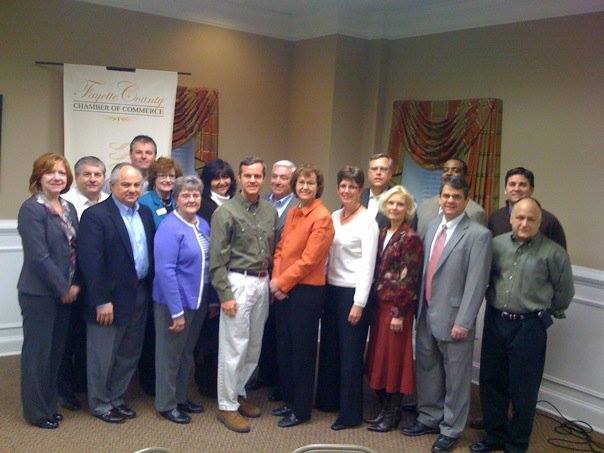
2010 Fayette County Chamber Board of Directors. In the center, Joe Domaleski (Chair) and Virginia Gibbs (President). Photo/Fayette Chamber
Despite nearly losing everything in 2011, we persevered. Throughout it all, our tight-knit team (including Lindsey) stood with me, weathering the storm together. Our clients also displayed unwavering loyalty, many of whom remain our valued customers to this day.
Partly in response to the recession and partly due to shifting market dynamics, we opted to exit the technology support sector, choosing to exclusively focus on website design and associated graphic endeavors. Thus, in 2011, we embarked on a rebranding journey, leading to the birth of Country Fried Creative. Shari, who remained a part-time collaborator, crafted our initial logo – a design that still forms the foundation of our current emblem. The rebranding effort yielded positive results, marked by an uptick in business activity.
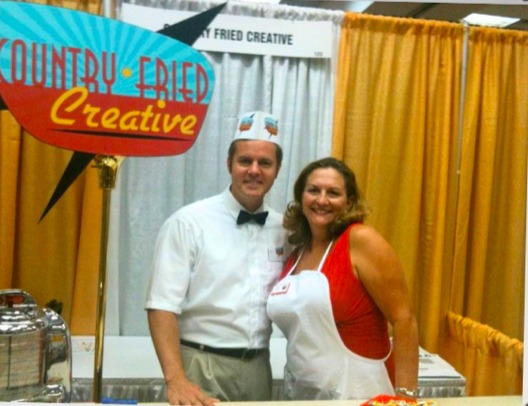
CFC Owner Joe Domaleski and original Creative Director Shari Gee launch the Country Fried Creative brand at the 2011 Chamber Business Expo. Photo/Fayette Chamber Staff
I’m often asked, “Why Country Fried Creative?” Great question. We thought it was a fun name that leveraged our love of the South, fried foods, and being creative. The original logo was designed to evoke images of roadside diners – a marketing motif we still use today. Coincidentally, Zac Brown Band’s song “Chicken Fried” became a hit – although neither concept is related.
At the inception of the company, web projects were primarily centered around technical aspects. However, as technology evolved, the role of creativity in web projects grew increasingly vital. Coming out of the recession, we landed a client for whom we managed an e-commerce website. This connection introduced me to Janine DeMichele (now Baggett), who was working part-time for the client. Janine’s strong work ethic, meticulous attention to detail, and creative brilliance instantly left an impression on me. Her freelance contributions eventually evolved into a full-time position.
Today Janine serves as our full-time Creative Director and Vice President of Creative. I can confidently say that Janine is the most exceptional creative professional I’ve ever had the privilege of working with. Guided by the remarkable duo of Lindsey and Janine, I’m truly blessed to have the finest executive team steering the company. Last fall I penned a column in this paper with advice for my new executives.

Formal announcement of the promotion of Lindsey Thompson (L) and Janine Baggett (R) to Vice President. Photo/Joe Domaleski
Under the rebranded banner of Country Fried Creative, our enterprise began to expand – acquiring new clients, broadening service offerings, and welcoming additional team members. In 2016, we introduced social media marketing services, further enhancing our portfolio. My daughter Tori joined the firm part-time, helping Janine with social media and content management. Here’s a picture of “the original five” just before we started growing the business.
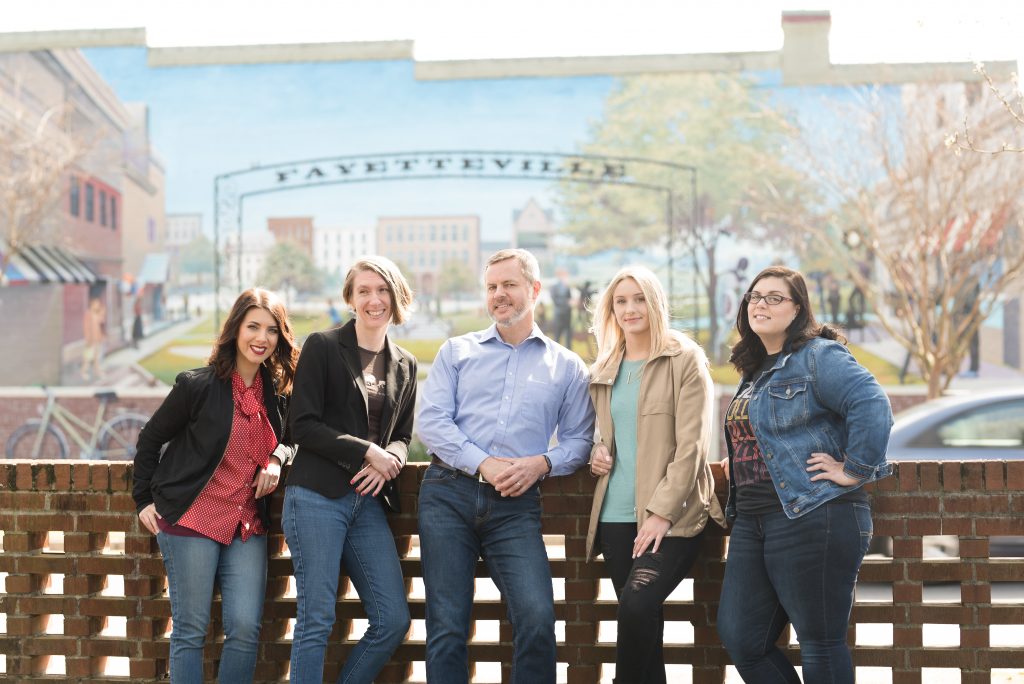
The original CFC Five – Janine Baggett, Lindsey Thompson, Joe Domaleski, Tori Domaleski, Hollie Holder just before the company doubled in size. Photo/Jenn Bibby
The year 2017 proved to be a milestone, and in January 2018, I was honored with the distinction of being selected as the 2017 Fayette Chamber Business Person of the Year – the Chamber’s highest award. I’m still not sure I was deserving of that award but it was definitely a booster shot of confidence that we must be doing something right. Additionally, we collaborated with the Chamber and local government officials to launch the “Create Your Story” branding campaign in conjunction with the Fayette Visioning team.
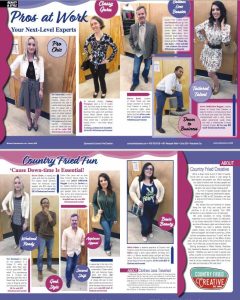
CFC staff serve as models for Clothes Less Traveled in a Fayette Woman magazine photo shoot in late 2018. Photo/Joyce Beverly
Later in 2018 we started to expand our creative service offerings into branding, logo, and print design projects. Also in 2018, we started to participate in the Fayette County Schools Work-Based Learning program in which high school seniors compete to intern with local companies. We still participate in the program and have watched as some of our early interns have successfully completed college and gone on to successful careers. Two of our former interns still work for us.
Our biggest year in terms of growth was 2019 in which we doubled in size in terms of employees and clients. We entered the “COVID years” with a strong team, that was already working from home. We helped our clients pivot to remote working models and helped save more than one business during those challenging times. See, during COVID many businesses had to change their operating hours and offerings.
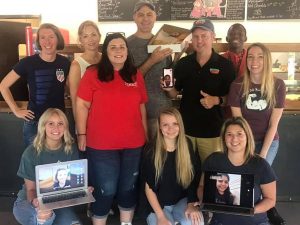
Growing CFC team has a meeting in a donut shop during the summer of 2019. Photo/Joe Domaleski
Digital marketing was really the only effective way to get the word out and we were uniquely positioned to help. Several organizations later told me that we helped saved their business by helping them stay connected with customers. It was also during 2019 that we fully embraced the broad range of services we offered and started identifying ourselves as a Digital Marketing Agency.
In 2021 we were named the Fayette Chamber Small Business of the Year, a team award that truly recognized the efforts by all of our team members to run a high-quality, successful company. Since then, we’ve continued to adapt our service offerings and methodologies to provide high-quality, relevant, marketing services to a mostly local clientele.
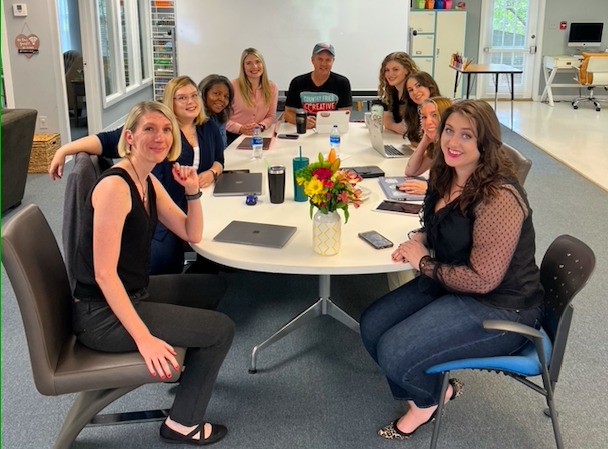
Most of the CFC team (we were missing a few) from our August 2022 Photoshoot. Photo/Leticia Andrade
It may sound like all is well, but over the years we’ve had to overcome a number of challenges. Frankly, 2023 has been a challenging year. Although I’m not sure that economists are in agreement, my own thoughts are that we’re in a recession. During good times I’ve seen growth in all types and sizes of businesses in our community. It seems right now that only the very large organizations are doing well – particularly those attached to large sources of funding. Our business is doing well (could always be better) but I know a lot of companies are struggling. Interest rates are up and companies that couldn’t hire enough people are now starting to lay people off. Artificial Intelligence (AI) is making some people more effective and for others it’s putting them out of a job.

All hands on deck! July 2023 Country Fried Creative team meeting featuring in-person and remote staff in our Trilith remote office. Photo/Joe Domaleski
In hindsight, our journey from a one-person company to a thriving enterprise has been defined by resilience, collaboration, and a commitment to excellence. As I look back over our 20-year history, one undeniable truth emerges: the most vital and cherished ingredient of our success has been people. From the very beginning, the support, belief, and dedication of friends, clients, mentors, and team members have been the driving force behind our achievements. Their unwavering commitment, collective expertise, and shared enthusiasm have propelled us through challenges, innovations, and growth. Looking ahead, we are excited to continue this journey with the same spirit of camaraderie.
There’s a lot of other things I could have done to make more money and perhaps work less over the past 20 years. It wouldn’t have been the same. This journey of ours has helped me to learn a lot about myself and meet some incredible people along the way. Here’s to another 20 years of home grown, community driven focus by all of us here at Country Fried Creative.
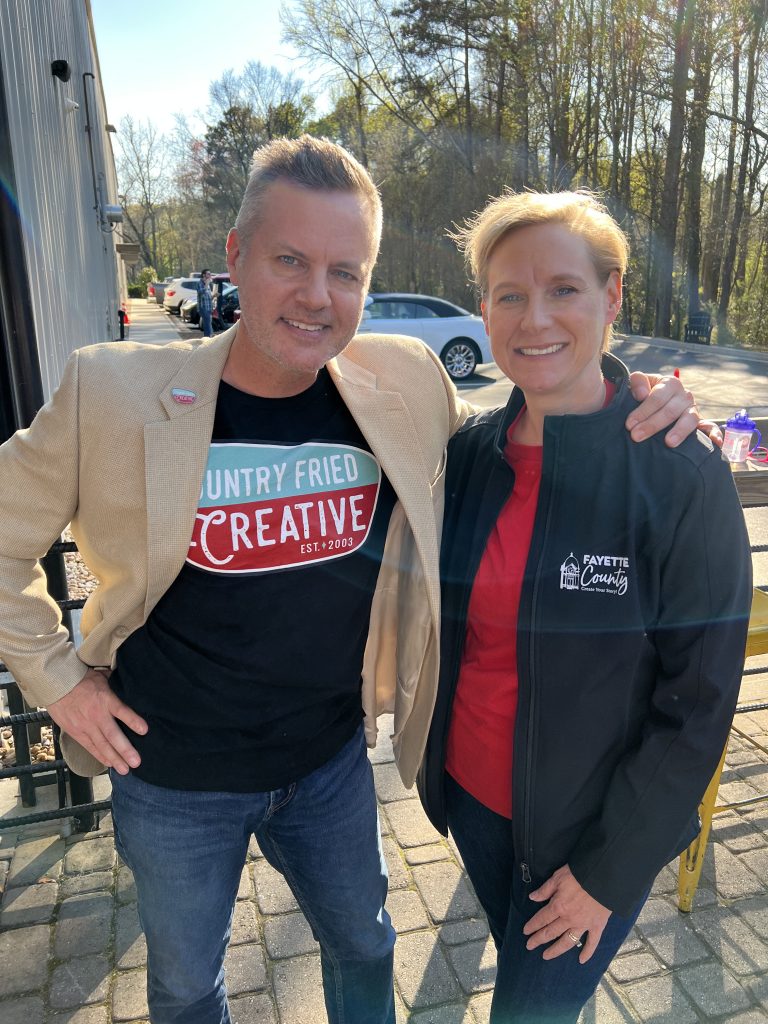
Joe and Mary Catherine Domaleski, Co-Owners of Country Fried Creative. Photo/Cereto Bean
[Joe Domaleski, a Fayette County resident for 25 years, is the owner of Country Fried Creative – an award-winning digital marketing agency located in Peachtree City. His company was the Fayette Chamber’s 2021 Small Business of the Year. Joe is a husband, father of three grown children, and proud Army veteran. He has an MBA from Georgia State University and enjoys sharing his perspectives drawing from thirty years of business leadership experience. ]


